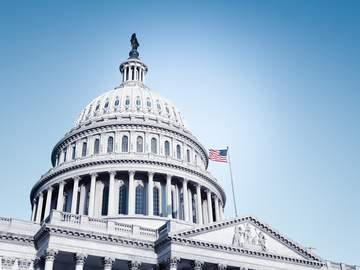

democracy or a republic? This is one of those “either/or” questions that seems like it should have a straightforward answer; after all, two such different words must have two different definitions, right?
The short answer is that democracy and republic are frequently used to mean the same thing: a government in which the people vote for their leaders. This was the important distinction at the time of the founding of the United States, in direct contrast with the rule of a king, or monarchy, in Great Britain. In part because that context was clear to everyone involved in the American Revolution, these terms were used interchangeably in the late 1700s. Both democracy and republic meant that the power to govern was held by the people rather than a monarch.
At the same time, it’s true that there is nuance and difference between these words, according to their historical use and etymology: democracy comes from the Greek roots meaning “rule by the people,” and the most basic understanding of the word’s original meaning refers to the direct democracy of ancient Greece.
Republic comes from the Latin roots meaning “public good” or “public affair,” used in ancient Rome to mean simply “state” or “country” with reference to the representative democracy of the Roman Republic. The elected representatives in Congress are a contemporary example of this kind of government.
Because democracy is an abstract name for a system and republic is the more concrete result of that system, democracy is frequently used when the emphasis is on the system itself. We could say that democracy is to republic as monarchy is to kingdom.
These terms are not mentioned in the Declaration of Independence, a document that nevertheless expresses clearly that governments should be established “deriving their just powers from the consent of the governed.” This reads like a definition of both democracy and republic. In Article IV Section IV of the Constitution, the term republican is used as an adjective: “The United States shall guarantee to every State in this Union a Republican Form of Government.”
In the final analysis, what these words share in meaning is much more important than how they differ.